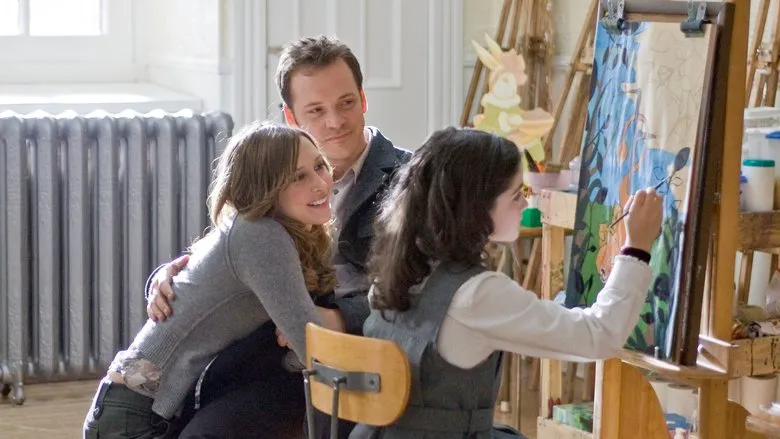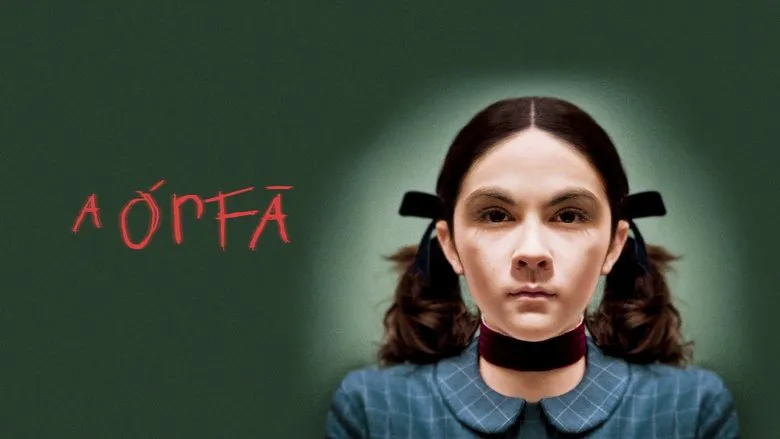
On the surface, Kate and John seem to have it all. However, tragedy strikes when Kate gives birth to a stillborn child. Seeking to fill the void, they decide to adopt a young Russian orphan named Esther from a local orphanage. Esther is a peculiar child, always wearing black ribbons around her neck and wrists, with a strange fondness for vintage dresses reminiscent of “grandma’s attic.” She also possesses an uncanny talent for playing Tchaikovsky on the piano for a nine-year-old. Yet, she carries herself with an unusual level of composure and modesty, initially dispelling any doubts about her character in the minds of her new parents. Max, the couple’s younger, deaf daughter, accepts her new sister without a word. However, their eldest son, Daniel, who is entering the turbulent throes of puberty, throws tantrums, insisting that Esther is not his sister and demanding that she be returned to where she came from. As for Esther, she initially only blinks and smiles. But then, she picks up a stone and, with a chilling sense of compassion, finishes off a wounded pigeon shot by Daniel, claiming it was “to end its suffering.” Later, she pushes a classmate off a slide, justifying it as “to stop her from teasing.” And then, she begins to pit her new parents against each other, “to keep them on their toes.”

More Than Just a Horror Flick
It’s important to clarify that “Orphan” isn’t just another horror story about some paranormal entity seeping into the world from the depths of hell. Instead, it’s a thriller in the vein of “The Hand That Rocks the Cradle.” While sulfur might be effective, kerosene still proves more efficient when it comes to destroying evidence. The debut screenwriter, David Johnson III, skillfully adds psychological depth to the story of a cuckoo bird destroying the nest it was placed in. We see a father who doesn’t doubt that nuns at the orphanage could have taught a girl the word “fuck,” frightened children who know the truth but remain silent – one under threat of being shot, the other under threat of castration – and a traumatized mother, struggling with alcoholism, plagued by terrible suspicions but unable to prove anything to anyone.
The Suspense is Key
However, the core of this thriller isn’t the kerosene, the gore, or even the psychology.
The Hitchcock Effect
As Hitchcock once and for all demonstrated, it’s the speed at which a doorknob turns that truly matters. Director Jaume Collet-Serra, who overcame the chaotic looseness of his debut film “House of Wax” in 2004, suddenly finds his rhythm, setting the pace of the thriller with a truly effective sense of timing. So effective, in fact, that by the time we finally learn why the strange girl plays Tchaikovsky so well (the only truly novel element in the film), it no longer matters. The answer to the mundane question of what’s in the hands of the person standing behind the door suddenly becomes more important than all the psychopathological reasons that person is there.